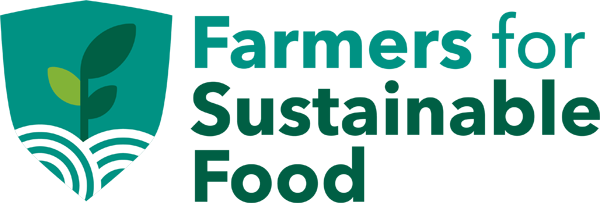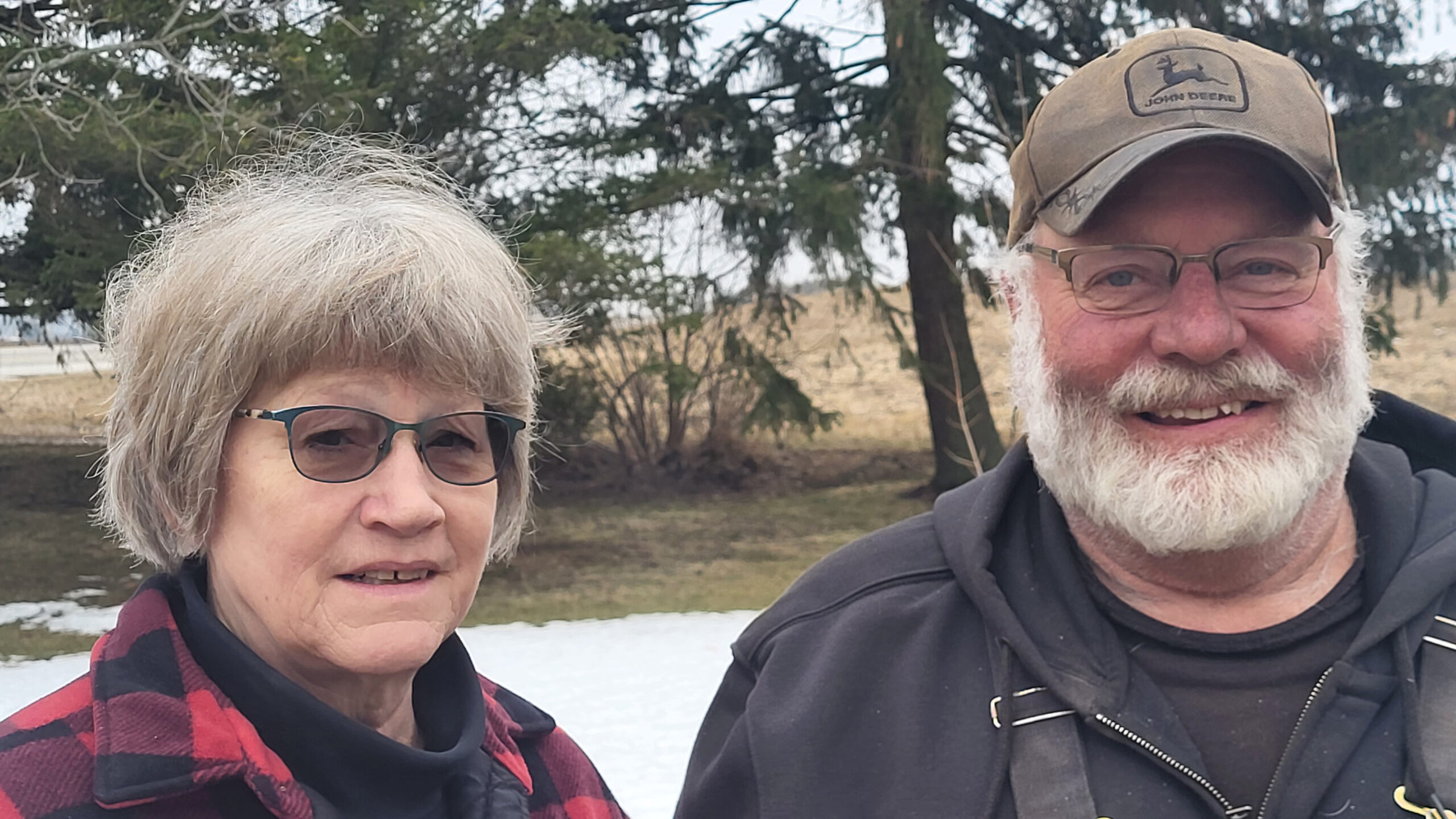
News

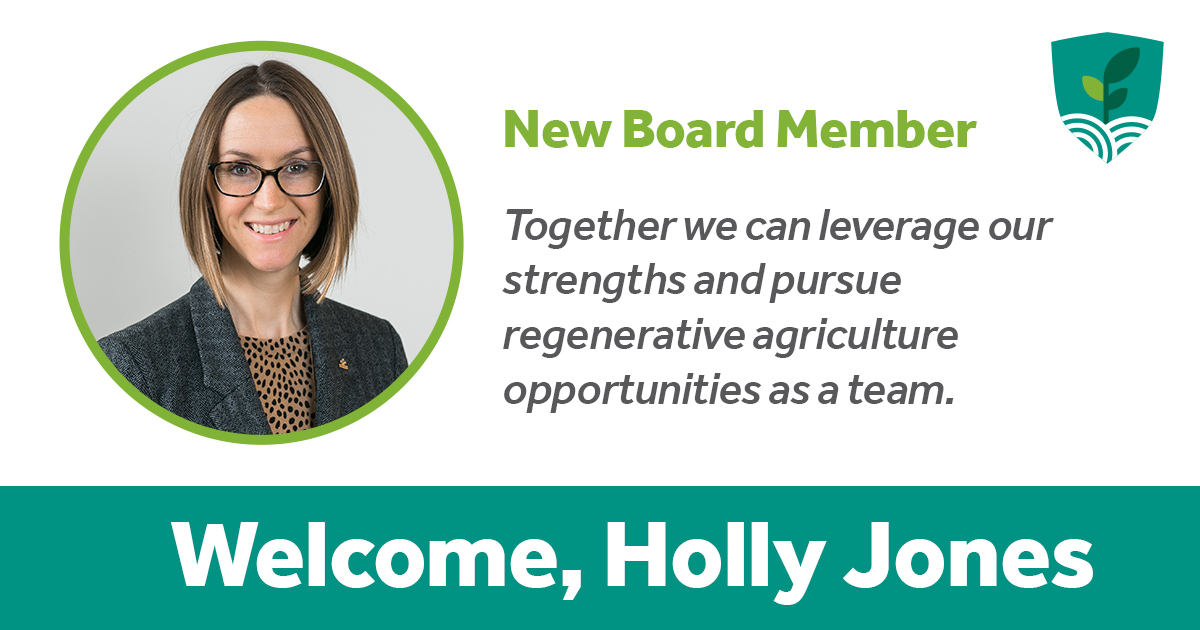
Holly Jones
Background: what you do/how you got involved with sustainability?
Holly leads sustainability at Agropur, a Top 20 cheese producer globally and North America’s largest whey protein manufacturer. Before Agropur, she served as the Sustainability Director with the Business Council for Sustainable Development, supporting leading multinational companies in industries such as construction, textiles, chemicals and finance, in Latin America.
Why did you want to be a part of FSF and serve on the board?
While Agropur’s sustainability efforts address many issues under our own roof, such as energy and water management, greenhouse gas emissions, waste stream upcycling and packaging, we also provide support to the 350+ US farmers that produce the milk that goes into our dairy products. Regenerative agriculture has become a major focal point in the food and beverage industry, due to the positive role it can play in achieving sustainability goals. As a dairy processor, Agropur has the opportunity to connect the good work being done on dairy farms with food and beverage companies that are looking to accelerate these types of activities across their supply chains.
Why should others join FSF?
FSF is the ideal organization to bring people together, create unique collaboration opportunities and ignite important conversations across the agriculture and food industries. Together we can leverage our strengths and pursue regenerative agriculture opportunities as a team.
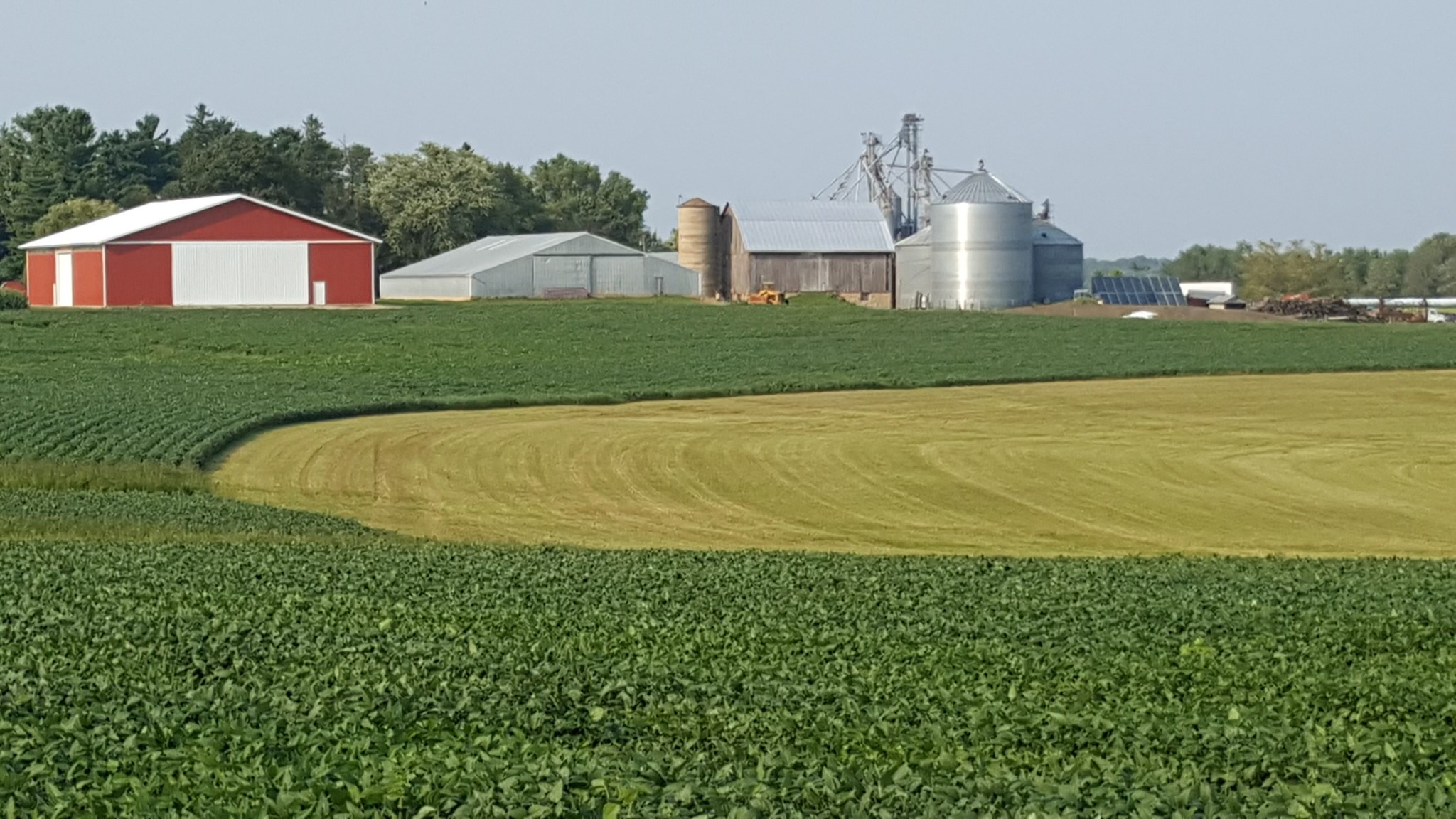
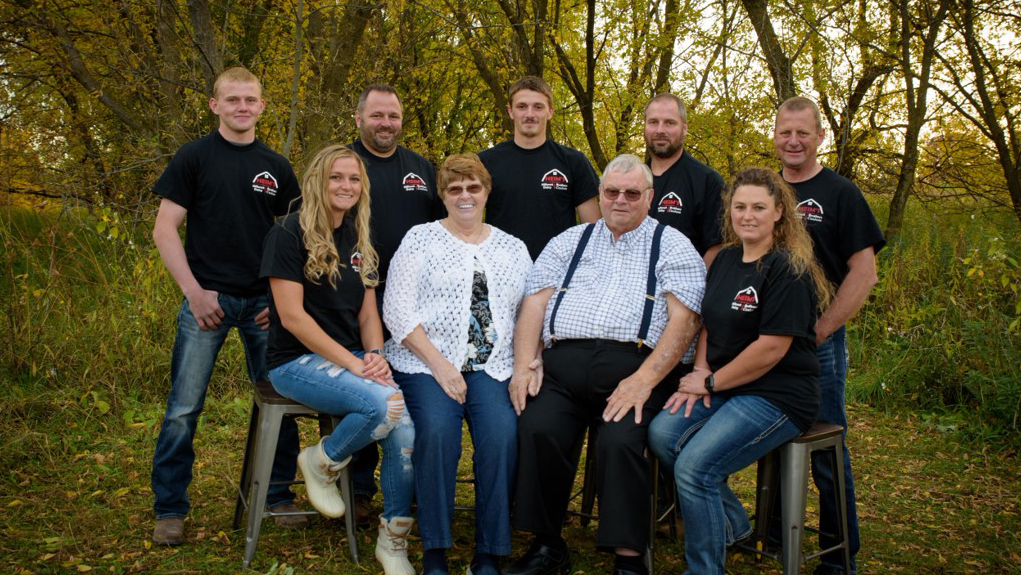
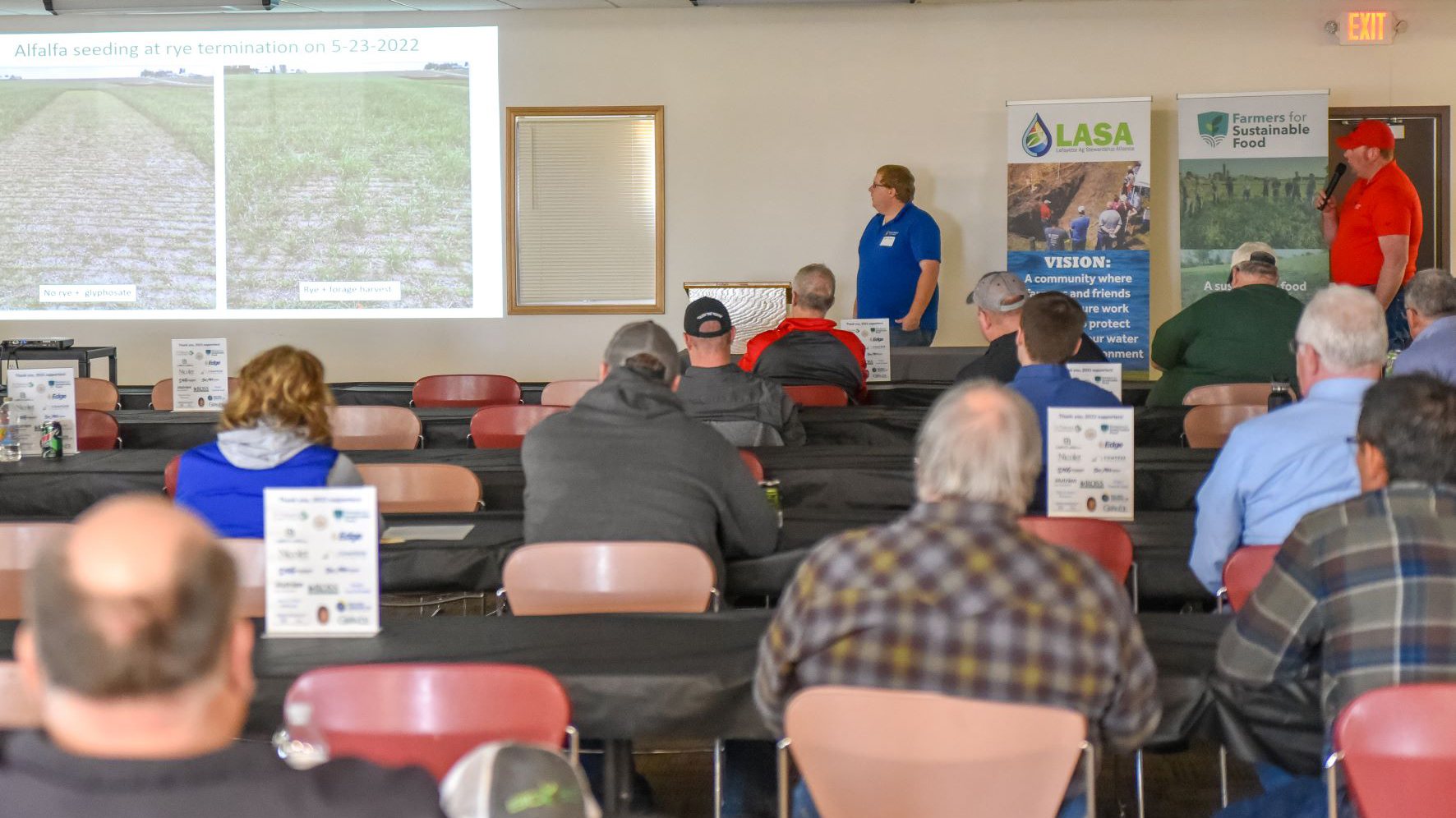
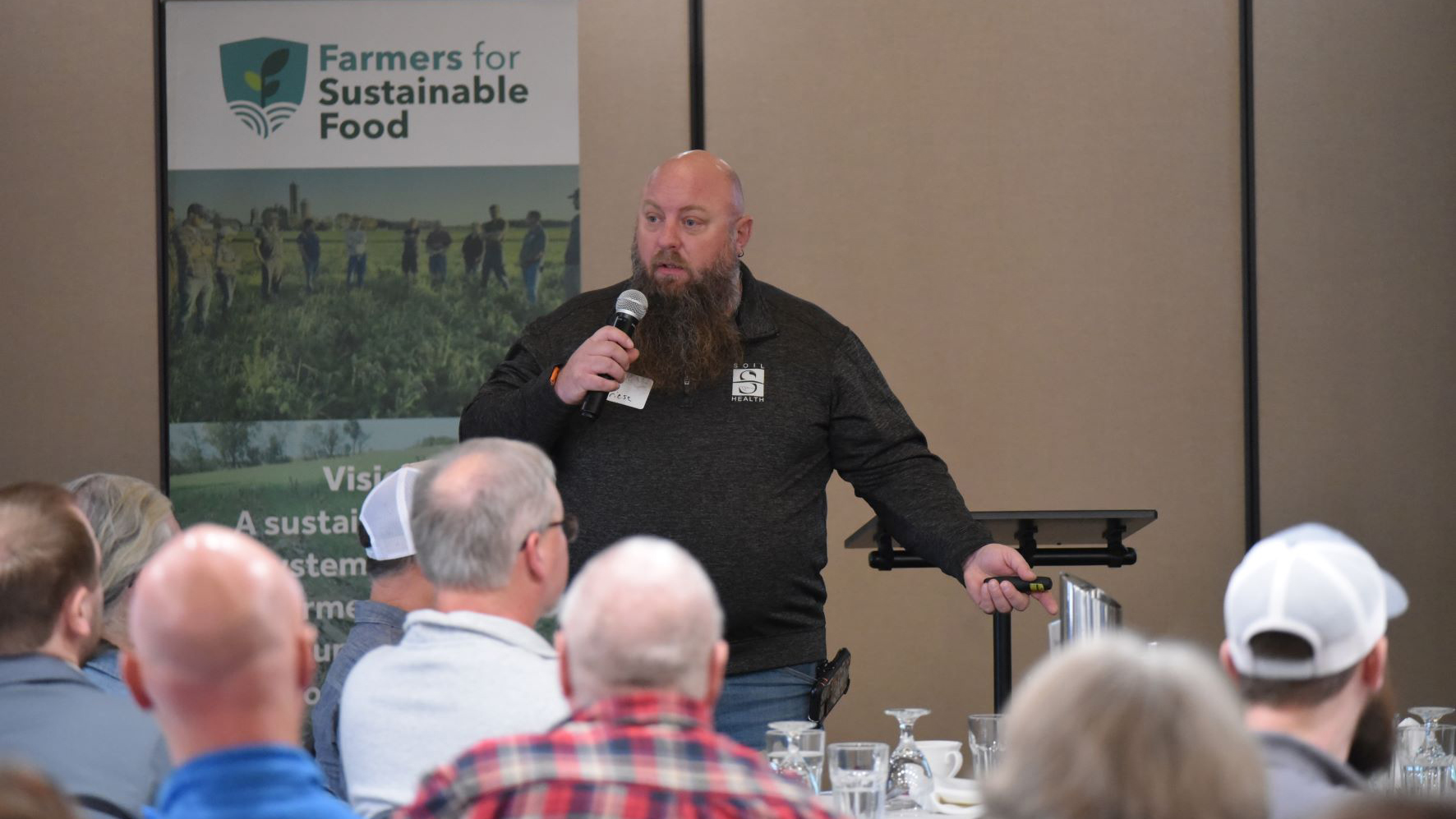
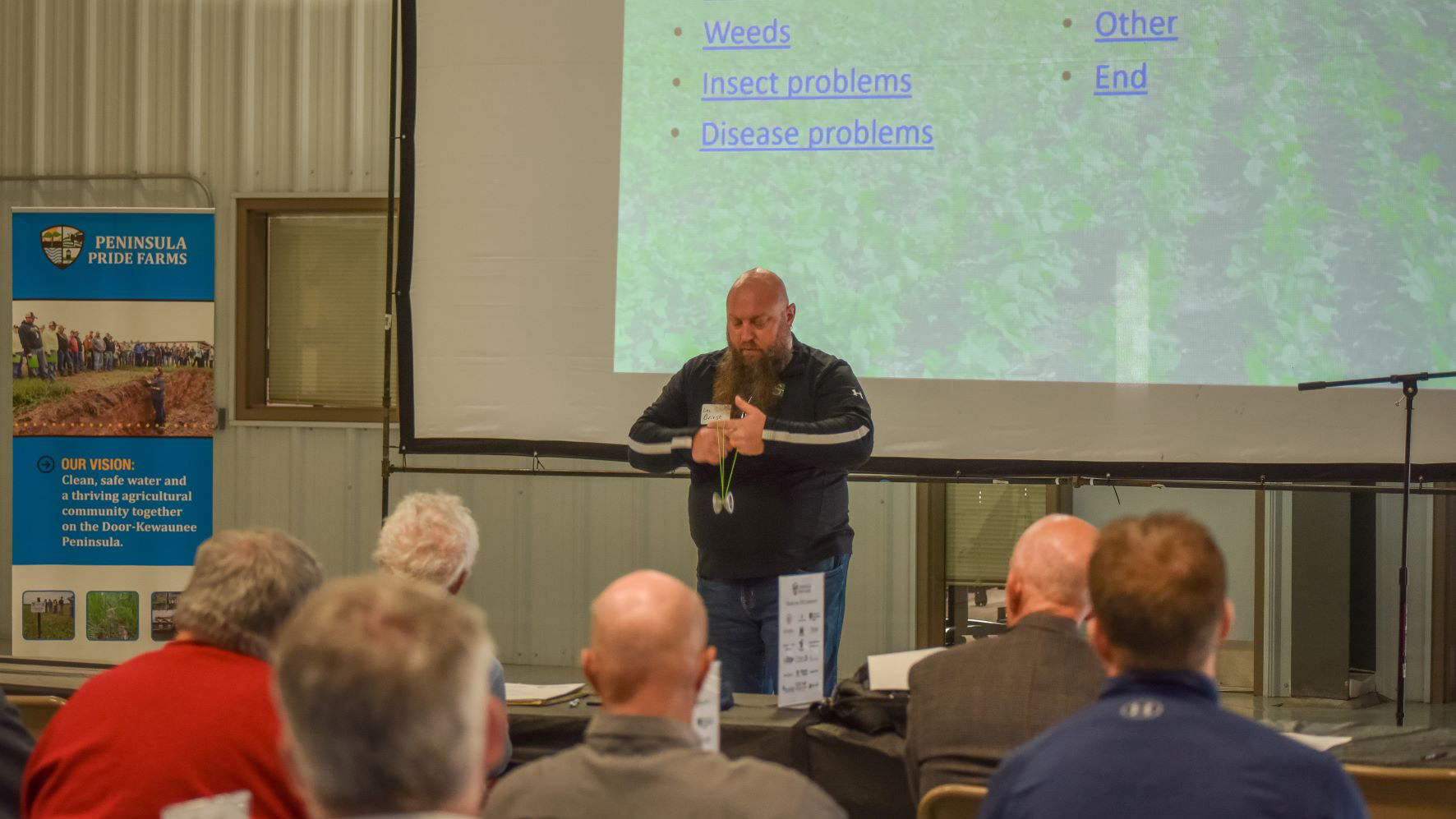
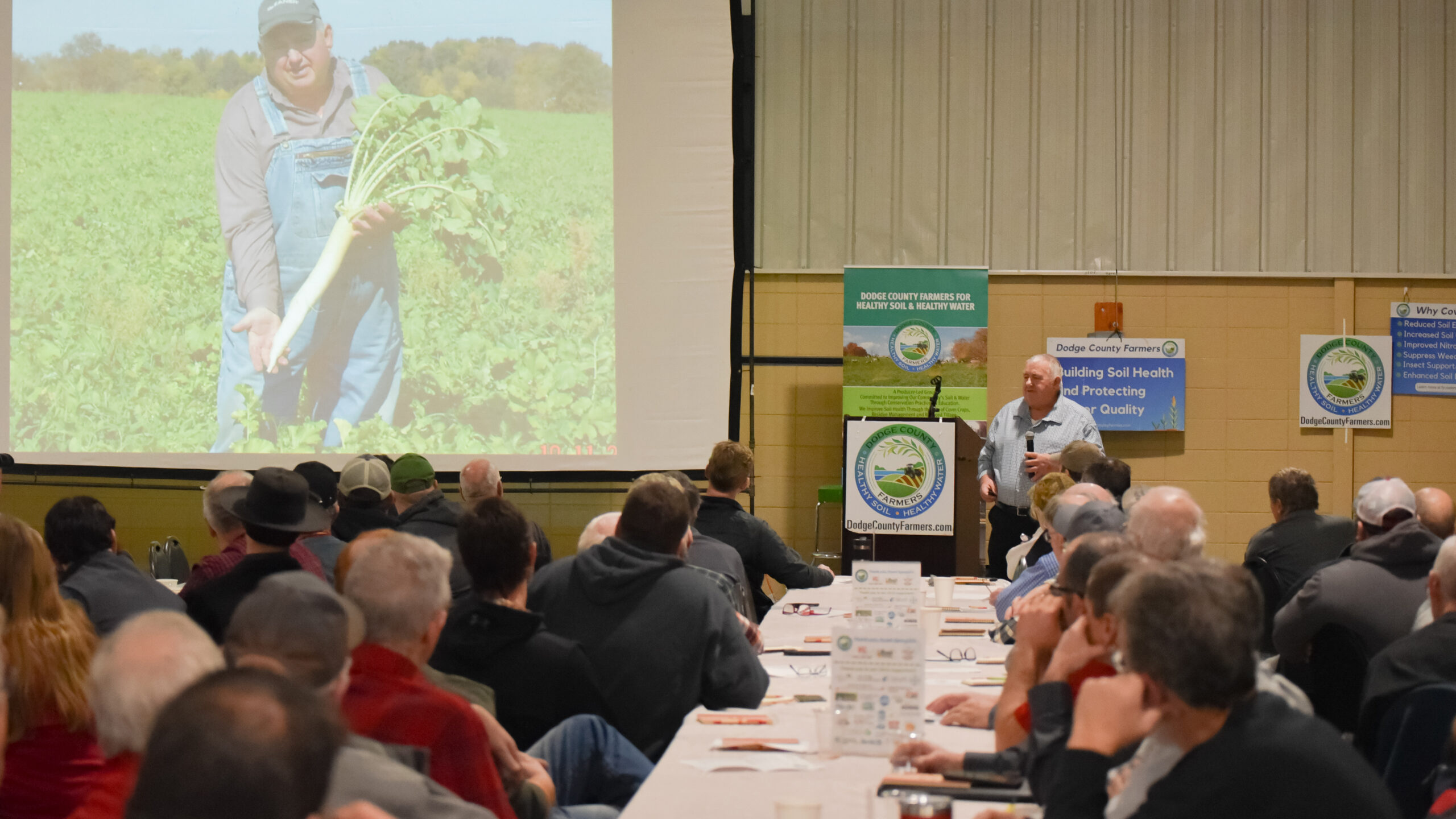
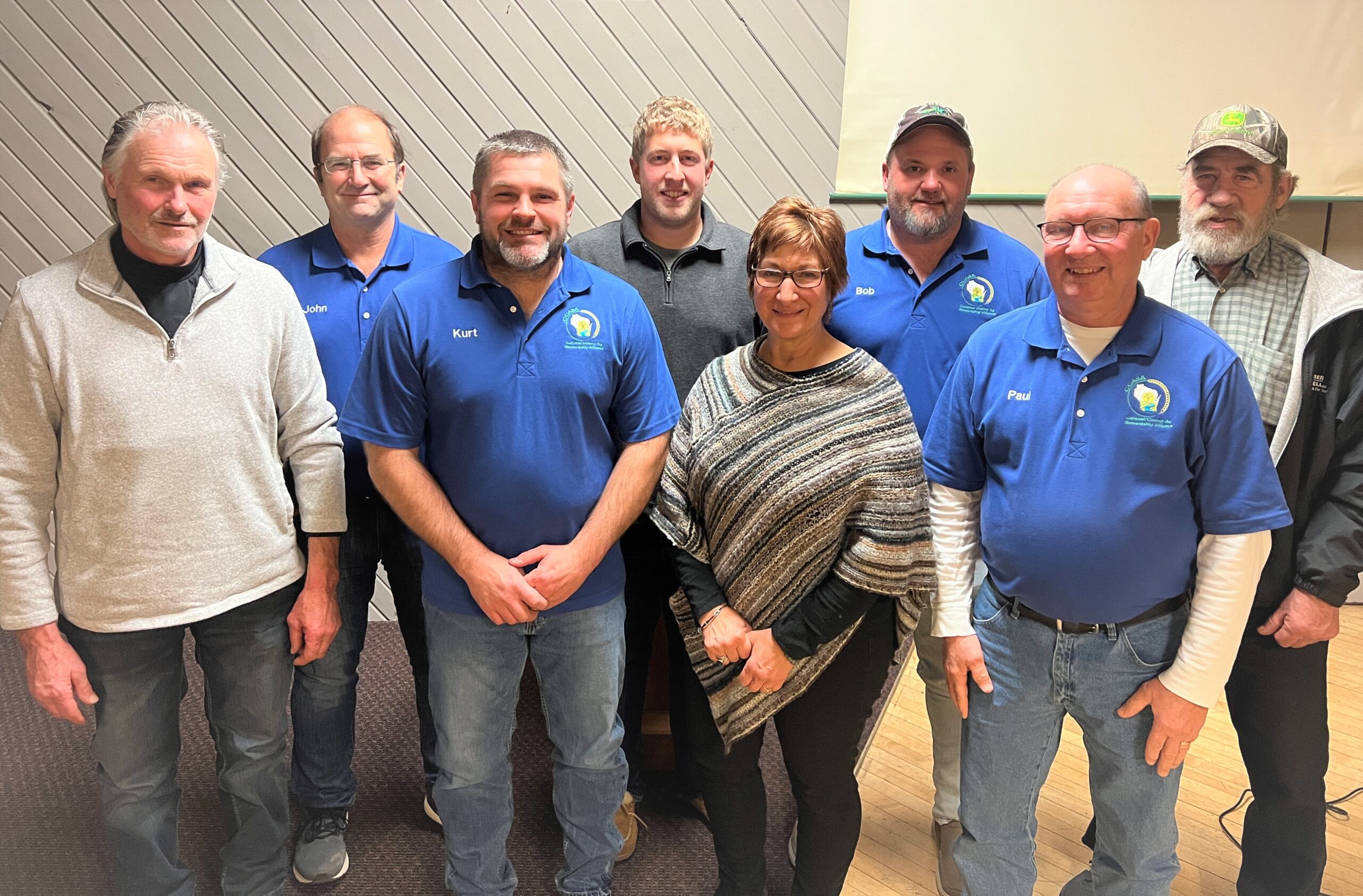
Calumet County Ag Stewardship Alliance elects new board members at annual meeting
Calumet County Ag Stewardship Alliance (CCASA), a farmer-led conservation group, held its annual meeting on Jan. 24. Nearly 40 farmers, industry leaders and community members gathered to learn about the group’s continued effort to grow conservation practices throughout the county.
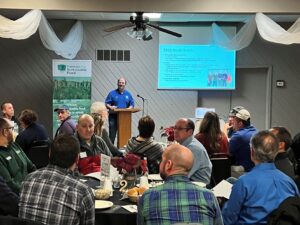 CCASA president John Schwarz shared the group’s accomplishments from 2022. The group has grown to 23 members, hosting three events last year — including a farm tour with Governor Evers. It offered another year of cost-share programs supported by DATCP and The Nature Conservancy. The group’s goals for 2023 consist of continuing cost-share programs, well-testing, increasing membership and its member conservation practice survey.
CCASA president John Schwarz shared the group’s accomplishments from 2022. The group has grown to 23 members, hosting three events last year — including a farm tour with Governor Evers. It offered another year of cost-share programs supported by DATCP and The Nature Conservancy. The group’s goals for 2023 consist of continuing cost-share programs, well-testing, increasing membership and its member conservation practice survey.
Members take a conservation survey each year to measure the group’s growth. Shawn Wesener, data collection specialist from Farmers for Sustainable Food, shared the group’s expansion to 18 farm members representing 23,801 livestock and 23,664 acres — a 67% increase in cropped acres since 2020. The survey also showed that CCASA actively manages nitrogen; 94% of members have a Nutrient Management Plan. All members have a portion of acres in cover crops and do some reduced-till or no-till with their cover crops. The group’s progress in such a short time continues to drive excitement.
Attendees also heard from guest speakers about utilizing cover crops in feed rations and how they can learn from and participate in state and federal programs.
Dan Brick of Brickstead Dairy is a participating farmer in the Lower Fox Demonstration Farms Network. He spoke about his goals of using cover crops to feed his livestock and having a high-value forage from cover crops that feed milking cows and dry cows. He feels it’s an ongoing cycle at his farm.
“Feeding the cows takes feeding the soil,” Brick said.
The focus is on quality rather than quantity. Brick shared it takes some management to time out harvest right. For example, he wants to harvest the rye or triticale to keep the plant quality before it heads out. Brick stressed working with your custom harvester. In his trials, he also found benefits in using the county-owned roller-crimper to terminate the standing cover crop and interseeder to plant cover between rows of planted corn.
Aaron Wunderlin from Discovery Farms also shared their outreach program on on-farm water quality and experiments happening in the region. They currently have two types of monitoring in several projects around the state, nitrogen leaching and edge of field. He showed the methods of the program and how they design studies with controls. This spring, a member of CCASA will be installing a research area on a local farm. He shared his gratitude for the farmer’s participation.
“We really appreciate the farmers cooperating with us to help understand the water quality across these regions,” Wunderlin said.
Joe Smedberg also briefly updated the group on USDA – NRCS programs for 2023 and beyond. He highlighted a significant amount of money coming to conservation and wanted to express the importance of getting those funds to the farmers doing the work.
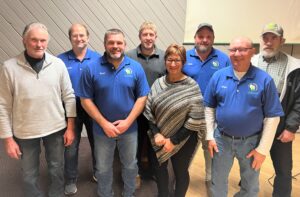
As CCASA continues to grow its membership, it also expanded the board of directors at this year’s meeting. CCASA elected a full board, including John Schwarz, president; Kurt Schneider, vice president; John VandenBoom, treasurer; Barbara Fett, secretary; Paul Meyers; Ken Rach; Bob Danes; Jim Casper and Dave Geiser.
For more information on events in 2023, follow CCASA on Facebook at facebook.com/CalumetCountyAgStewardshipAlliance or check out their new website www.calumetcounty.org/CCASA
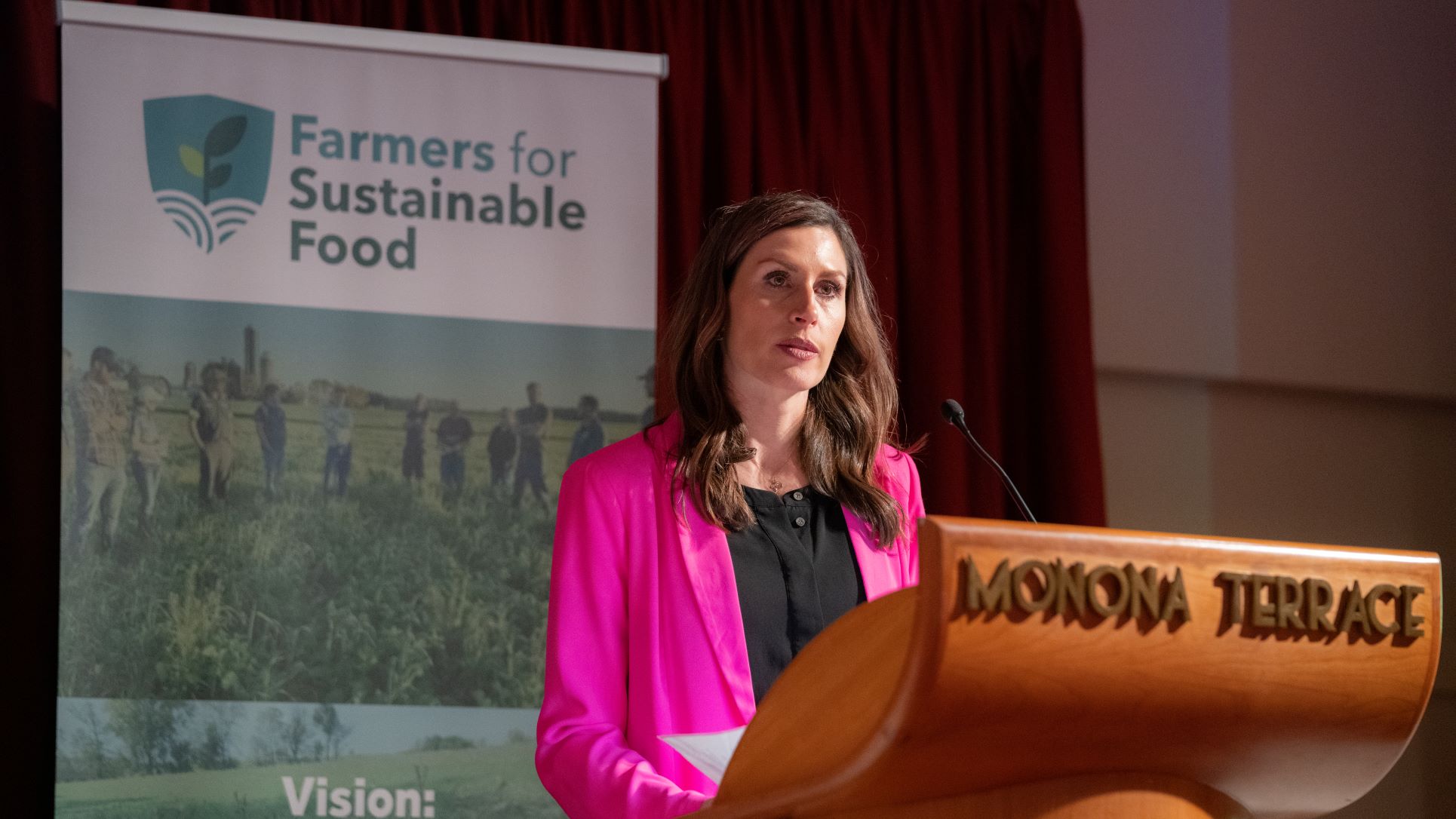
Farmers for Sustainable Food shares how farmers are being climate smart at annual meeting
Riding a wave of momentum entering 2023, Farmers for Sustainable Food stands poised to expand their efforts in farmer-led sustainability projects, according to leadership. Members, leaders and industry partners gathered for FSF’s 2022 annual meeting on Jan. 19 at the Dairy Strong conference.
Word is spreading about the nonprofit’s work. FSF membership has grown to 51, including 11 newcomers in 2022. By partnering with seven farmer-led conservation groups across Wisconsin, FSF now works with 300 farmers representing 260,428 acres and 165,987 head of livestock.
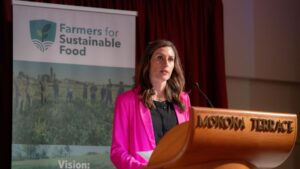 FSF continues to show growth not only through farmers and acres but also with projects, including expanding into the animal care space, and conservation practices implemented throughout the Upper Midwest.
FSF continues to show growth not only through farmers and acres but also with projects, including expanding into the animal care space, and conservation practices implemented throughout the Upper Midwest.
Managing Director Lauren Brey gave an overview of plans for continued growth, enhanced through a $50 million USDA Partnerships for Climate-Smart Commodities grant FSF received with its sister organization Edge Dairy Farmer Cooperative.
“We’ve outlined three different avenues for these climate-smart projects, including farmer-led groups and working with dairy and beet sugar processors to spearhead projects with farmers in their supply chains,” Brey said. “Our approach is really trying to be flexible and not prescribing practices or prescribing a way of doing a sustainability project, but rather just getting farmers to be proactive.”
A representative from each farmer-led conservation group supported by FSF shared highlights of local activities. The groups: Calumet County Ag Stewardship Alliance, Dodge County Farmers Healthy Soil Healthy Water, Lafayette Ag Stewardship Alliance (LASA), Peninsula Pride Farms (PPF), Sheboygan River Progressive Farmers, Western Wisconsin Conservation Council (WWCC) and Yahara Pride Farms (YPF).
“We aren’t just talking about making a positive impact in our watershed; we are doing it,” Jeff Endres, YPF president, said.
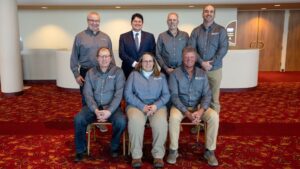
Front L-R: Jeff Endres, Lynn Thornton, Todd Doornink. (not pictured: Holly Bellmund and Colleen Geurts)
Members of FSF re-elected three directors to its board —Paul Cornette of PPF, Lee Kinnard of Kinnard Farms and Greg Steele of Compeer Financial. Steele was elected treasurer and Cornette will remain vice president.
Other board members include Todd Doornink representing WWCC, the president; Holly Bellmund of GLC Minerals will remain secretary; Colleen Geurts; Jeff Endres of YPF; Lynn Thornton of Grande Cheese and Mike Berget of LASA.
